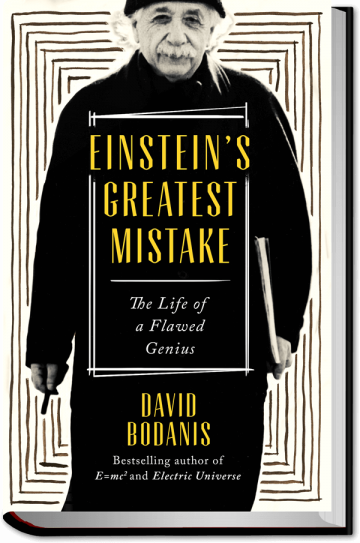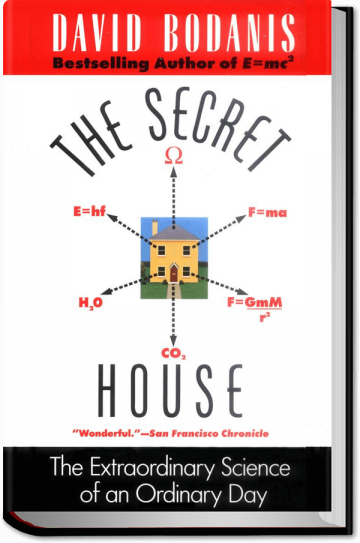Why do I write?
It's that words fade, and lives fade, but what's passed on need not. Waves can cross the Pacific, yet with no individual water molecule travelling more than a few yards; sections of DNA that were extant before the Himalayas rose up are still extant, and active, inside us now. Ethics matters; how we live our life matters: words from thousands of years ago speak to us as if today.
Writers are lucky: we get to scoop this up, and pass on what we've glimpsed. Here are some reflections on how my books have shifted over time; here are extracts and additional thoughts on particular works: E=mc², Electric Universe, Passionate Minds, Einstein’s Greatest Mistake, and the new The Art of Fairness.

The Art of Fairness
My latest book is on a question that has long fascinated me: Can you succeed without being a terrible person?

Einstein’s Greatest Mistake
This book stands on its own, but in another sense completes my series on Einstein, which began with 'E=mc²'. Science Book of the Year.

Passionate Minds
This is my biography of the quite extraordinary Émilie du Châtelet, the woman who taught Voltaire most of what he knew. BBC Book of the Week.

Electric Universe
I long wanted to write a science book that would read like a thriller, using love stories and war stories to get to the inner secrets of electricity.

E=mc²
This is the first of my two books on Einstein: the story not of the man himself, but of his most famous equation. The first draft poured out in nine weeks (albeit the editing took many times longer).

The Secret House
It's hard to pick a favorite book, but I've always had a soft spot for this one, about the invisible world that surrounds us in our daily life. It was the very first of my works to become a bestseller, which was nice, yet writing it was also the first time I really opened up and found a genuine voice, which was even nicer.
